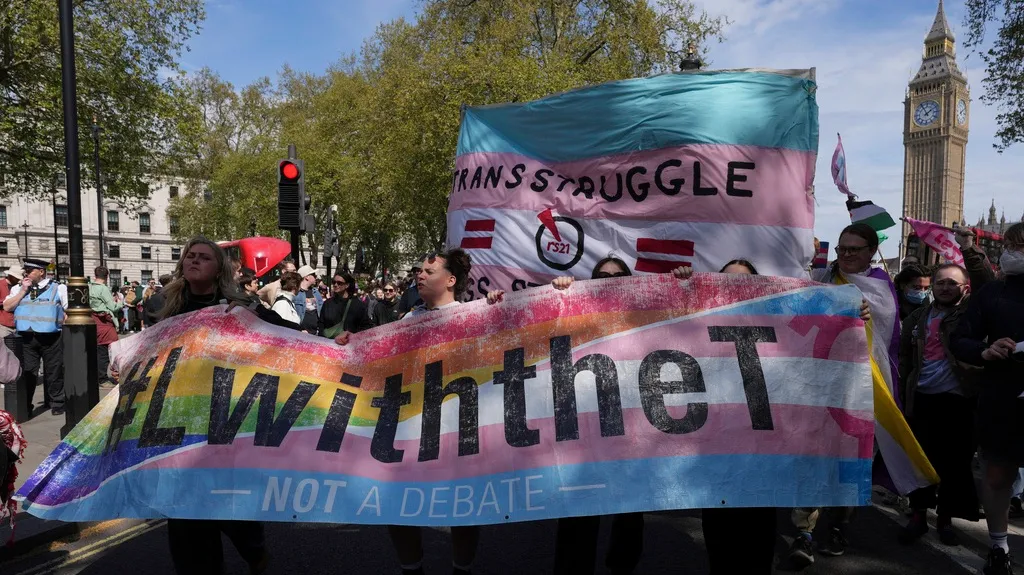July 22, 2013
Retail Rules Impact Castro Developments
Kilian Melloy READ TIME: 5 MIN.
New rules aimed at curbing the number of chain stores along upper Market Street are confounding developers of several new mixed-used projects who have various sized storefronts to rent.
Just what sort of merchants will meet with neighborhood approval and also be financially viable remains unclear, say developers and real estate agents looking to lease spaces on a main corridor in the city's gay Castro district.
Recent rejections of proposed Starbucks and Chipotle Mexican Grill locations along the thoroughfare due to the new chain store policy have given leasing agents pause as they try to find retailers who can successfully navigate the planning approval process.
"I didn't do one large space for only formula retail. But they certainly have limited our options of what we can do," said Brian Spiers, the local developer building the Linea project at the corner of Market and Buchannan streets near the U.S. Mint building.
He has yet to begin marketing four retail spaces, which vary in size from 400 square feet to 2,000 square feet, as they aren't planned to be ready until early 2014. The corner storefront Spiers envisions as a small cafe to "activate that corner" as it will have access to an outdoor patio.
With the Safeway shopping plaza north of his building, a Pet Food Express across the street, and a planned Whole Foods in the new development kitty-corner to it, the Linea's four retail spaces will all likely fall under the new rule that recommends disapproval of any formula retailer that brings the concentration of chain stores to 20 percent or more within a 300-foot radius.
"I might get lucky. A small bank might work here, but it doesn't seem it would fly," said Spiers, who owns the Lucky13 bar on the 2100 block of Market Street where both Starbucks and Chipotle had wanted to open in corner storefronts of existing buildings.
Both national brands met with no votes from the city's planning commission partly due to triggering the 20-percent threshold rule. They also had garnered fierce neighborhood opposition.
Following Starbucks' decision to accept the vote, Chipotle has also decided not to appeal the oversight body's rejection of its plan to open in the long-vacant former Home restaurant space.
"We are still very interested in San Francisco, and actively looking for sites. But we aren't going to appeal this one," company spokesman Chris Arnold told the Bay Area Reporter last week.
Duboce Triangle Neighborhood Association President Pat Tura, whose group had pushed for the new chain store policy, said city planners and residents in the area were both afraid that the upper Market corridor construction would attract the same influx of chain stores as has occurred in the new developments built near the San Francisco Giants' baseball stadium.
"It is a classic marketing strategy, where there is an existing, viable market and you bring in new development, that is where formula retail wants to go," said Tura.
Yet San Francisco has proven that commercial corridors can survive and thrive without name brand stores, said Tura, pointing to the nearby Hayes Valley district where there is an outright ban against formula retail.
"They are not hurting for business in Hayes Valley," said Tura. "In this neighborhood we weren't looking for a ban; we were looking for a balance. It gets out of whack when people say DTNA is against everything. We aren't against everything, but we are against very lopsided development."
The San Francisco Locally Owned Merchants Alliance is trying to help connect commercial realtors overseeing leases along upper Market Street with small business owners seeking to open in the gayborhood.
"I don't think it will be a huge issue to fill" the newer storefronts, said Sweet Inspiration Bakery Cafe co-owner Wendy Mogg, a member of the alliance. "Local developers know who they are looking for and are already doing outreach with merchants for the smaller spaces."
The main concern continues to be those landlords of older buildings on prominent intersections who have shown a predilection for leasing to chain stores, said Mogg.
"It is a matter of outreach to those landlords before they get into negotiations with chains," she said.
As it is, upper Market Street is not lacking in interest from retailers. Ruggero Gadaldi is at work relocating Pesce, a Venice-styled eatery on Polk Street, into 2223 Market Street, which most recently housed Jake's on Market. The restaurant follows on the heels of Jeffrey's Natural Pet Foods, which recently moved from 18th Street by Church to a storefront on Noe Street near Market.
In recent weeks local foodie blogs have reported on plans by Italian coffee company Illy to open in the vacant storefront at 2349 Market Street and on the desire of Marin County's Weaver Coffee to open at 2301 Market Street in the ground floor of Fitness SF.
The proposed Illy location was where a planned bar was met with neighborhood objections, while the owners of the gym ended talks to lease their storefront to the local Coffee Bean and Tea Leaf franchisee due to the concerns over chain stores.
Neither of the new coffee roasters falls under the city's rules for formula retail, nor have they yet to spark similar outcries as Starbucks did.
Suzanne Gregg, who is handling the leases for the storefronts at the nearby ICON building at 2299 Market Street on the corner of 16th and Noe streets, said she is taking into account the neighborhood's desire for locally owned businesses. It was a fight over Bank of the West's obtaining a lease in the building last year that helped convince planning officials of the need for the new chain store zoning rule.
As part of a compromise that led to approval of the financial institution's permit, developer Angus McCarthy agreed to carve out retail spaces of 500 square feet or less that would fit the needs of smaller merchants. A juice bar and a dry cleaning service have expressed interest, said Gregg.
"I don't think it is going to be an issue" to lease out the storefronts, said Gregg. "We are looking for really neighborhood servicing small businesses. I know the city wants that as well as the neighbors."
Community leaders are convinced that landlords can find tenants for their buildings along upper Market Street that will be warmly welcomed.
"Obviously, the upper Market corridor is one of the hottest places to start a business right now because of the new population of renters and owners who are going to be here," said Tura. "Certainly, it has not been short on people who want to come here and open a business."
Kilian Melloy serves as EDGE Media Network's Associate Arts Editor and Staff Contributor. His professional memberships include the National Lesbian & Gay Journalists Association, the Boston Online Film Critics Association, The Gay and Lesbian Entertainment Critics Association, and the Boston Theater Critics Association's Elliot Norton Awards Committee.







